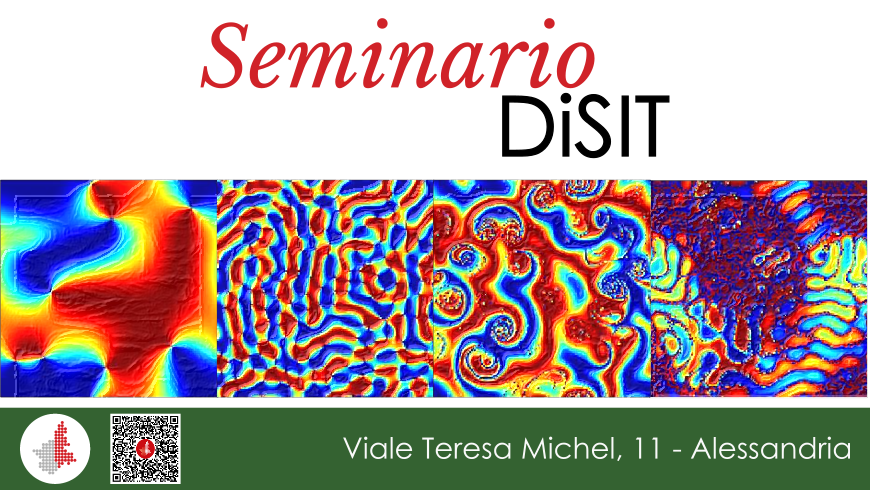- Argomento
- Scienza e Ricerca
SEMINARIO DiSIT Mercoledì 21.02.2024 ore 15.30 Aula 203
Data evento
21 Febbraio 2024, 15:30 - 18:00
Dove
Dipartimento di Scienze e Innovazione Tecnologica (DiSIT)
viale Teresa Michel 11
15121 Alessandria AL
Italia

Learning the topology of complex systems from their dynamics
Prof.ssa Ginestra Bianconi
Dipartimento di Informatica in Pampulha, Belo Horizonte, Minas Gerais (Brasile)
21 Febbraio 2024, ore 15.30 AULA 203
From the brain to the climate, complex systems constitute a real challenge for scientists and mathematicians as they are giving rise to dynamical phenomena notoriously difficult to understand, model and predict.
In the last twenty years the scientific community has made unprecedented progress in unveiling the structure of complex systems encoded in their network skeleton describing the set of their pairwise interactions. However networks are not able to characterize the ubiquitous higher-order interactions between more than two nodes that give rise to the complex systems topology captured by higher-order networks and simplicial complexes.
Here we reveal how non-linear dynamical processes can be used to learn the topology, by defining Topological Kuramoto model and Topological global synchronization. These critical phenomena capture the synchronization of topological signals, i.e. dynamical signal defined not only on nodes but also on links, triangles and higher-dimensional simplices in simplicial complexes. Moreover will discuss how the Dirac operator can be used to couple and process topological signal of different dimensions, formulating Dirac signal processing. Finally we will reveal how non-linear dynamics can shape topology by formulating triadic percolation. In triadic percolation triadic interactions can turn percolation into a fully-fledged dynamical process in which nodes can turn on and off intermittently in a periodic fashion or even chaotically leading to period doubling and a route to chaos of the percolation order parameter. Triadic percolation changes drastically our understanding of percolation and can describe real systems in which the giant component varies significantly in time such as in brain functional networks and in climate.
Allegati
-
 2024-02-21_pietro.grassi@uniupo.it
2024-02-21_pietro.grassi@uniupo.it
- Documento PDF - 191.06 KB
Link Utili
44.922958, 8.617857
Dove
Dipartimento di Scienze e Innovazione Tecnologica (DiSIT)
viale Teresa Michel 11
15121 Alessandria AL
Italia
Quando
-
Ultima modifica 20 Febbraio 2024
